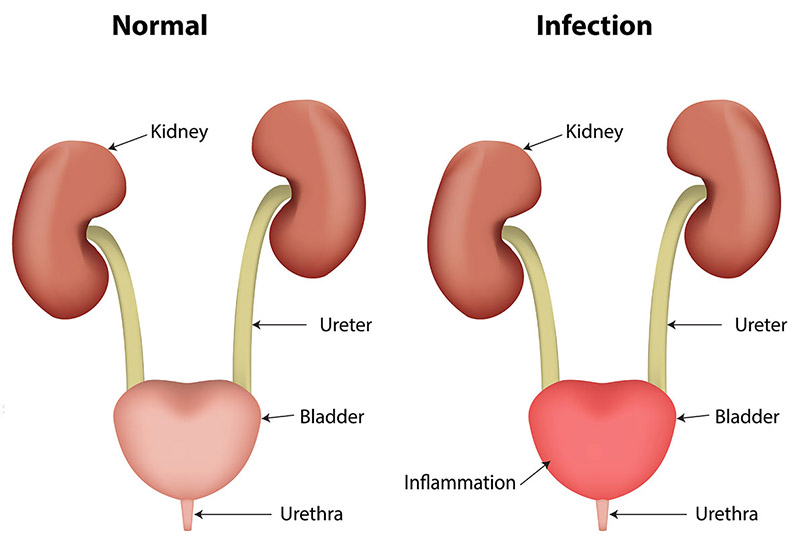An Overview of Urinary Tract Infection (UTI)
An Overview of Urinary Tract Infection (UTI)

A urinary tract infection (UTI) is an infection of the urinary system. Here is a look at the different types, causes, and the treatments and preventative measures avaliable.
A urinary tract infection (UTI) is an infection of the urinary system, caused by bacteria that has entered the urinary tract.
The urinary tract is made up of the two kidneys, two ureters (the tubes connecting the kidneys to the bladder), the bladder, the urethra (the tube that drains urine from the bladder) and the prostate (in men).
UTIs are very common, especially in women. They are usually confined to the urethra and bladder, and are easily treated. However, early management is necessary to avoid the infection spreading to the kidneys, which can be much more serious.
Types of Urinary Tract Infection (UTI)
UTIs are commonly caused by Escherichia coli (E. coli) – a bacterium commonly found in the gut (lower intestine). There are three types of urinary tract infections:
Urethritis – An infection of the urethra
Cystitis – An infection of the bladder
Pyelonephritis – An infection of the kidneys
Symptoms of a Urinary Tract Infection (UTI)
Around 1 in 2 women, and 1 in 20 men will experience a UTI in their lifetime. Symptoms include the following:
• A burning sensation when passing urine
• The need to urinate constantly, despite little urine being passed
• The feeling that the bladder is full, even after urinating
• Foul-smelling urine
• Discomfort in the lower abdomen
• Fever and even chills (if the infection has made its way to the kidneys)
• Pain in the lower back (if the infection as made its way to the kidneys)
If any of these symptoms are present treatment should be sought as soon as possible. If any of the symptoms for a kidney infection arise, immediate medical attention should be sought to avoid serious complications.

Causes of a Urinary Tract Infections (UTIs)
Urine is normally free from bacteria, fungus or viruses. This means that the infection will usually be caused by microorganisms entering the urinary tract via the urethra, or (rarely) through the bloodstream.
UTIs are commonly caused by E. coli, a type of bacteria commonly found in the gastrointestinal tract that spread from the anus to the urethra. Sexual intercourse may also lead to a urinary tract infection.
UTIs are also a possible side effect of urological surgeries such as prostatectomy and cystectomy.
Urinary Tract Infection Prevention
There are some preventative measures that can be taken to help reduce the risk of contracting a UTI, including:
• Drinking plenty of fluids to help flush the urinary system
• Practicing good genital hygiene
• (For women) Wiping front to back to avoid the spread of bacteria from the anus to urethra
• Not holding on to urine
• Emptying the bladder after sex to help flush out any bacteria
• Treating vaginal infections early
Urinary Tract Infection Treatment
Visit your doctor if you have any symptoms. A urine sample may be collected for testing. Antibiotics usually are the first treatment for urinary tract infections. Symptoms clear up within a few days of treatment.
Some people experience frequent UTIs. Your doctor may prescribe treatments for frequent infections, such as an ongoing prescription of low-dose antibiotics, single dose of antibiotic after sexual intercourse and vaginal estrogen therapy if you are postmenopausal.
Treating a Urinary Tract Infection with Urology Specialist
While he is primarily a urological cancer surgeon, Dr Arianayagam also sees patients with general urological problems.
If you have any further questions about urinary tract infection or kidney infections, or would like to book an appointment, please feel free to call.

Protect Your Kidneys: Simple Habits for Better Health
Keeping your kidneys in shape is vital for reducing the risk of chronic disease. Check out some of our top…

Boost Your Urological Health with the Help of Technology
Check out some of the different technological tools you can adopt to care for your urological health. While we all…






